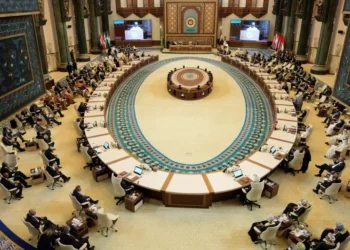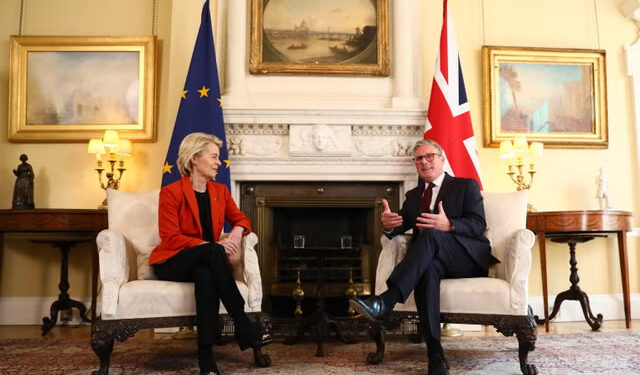Ethiopia has announced it secured over $1.6 billion in investment commitments, largely from Chinese companies, following the conclusion of the “Invest in Ethiopia High-Level Business Forum 2025.”
The Ministry of Finance confirmed the deals would significantly boost Ethiopia’s energy and mineral sectors as part of the country’s broader push toward private-sector-led economic growth.
In a statement, Ethiopia’s Minister of Finance, Ahmed Shide, reaffirmed the government’s commitment to creating a conducive environment for investment through macroeconomic reforms and institutional collaboration. He described this as a critical turning point for Ethiopia’s development ambitions.
“There has never been a more opportune moment to invest in our nation.
“Our economy is undergoing a transformation, guided by reforms aimed at ensuring macroeconomic stability and fostering sustainable, inclusive growth. Investment is not just welcome—it is essential.”
Ahmed Shide, Ethiopia’s Minister of Finance
He encouraged prospective investors to take concrete actions by engaging with Ethiopian investment institutions and forging strategic partnerships.
He added, “Investors are urged to explore the high-potential sectors outlined in our ‘deal book,’” signaling the government’s proactive approach in facilitating investment and regulation reforms.
Investment Deals

The forum concluded with the signing of several major agreements, many of them with Chinese partners, signaling deepening economic ties between Ethiopia and China.
Sesar Energy Advancing Solutions is slated to invest approximately US$100 million in the first phase and an additional US$150 million in the second phase to bolster local solar energy development.
This initiative aims not only to expand renewable energy capacity but also to promote technological innovation and job creation within Ethiopia.
Also, Hanergy New Energy Technology Company Limited & Jandu plan to inject US$360 million to establish a cutting-edge solar cell manufacturing facility.
This project is anticipated to play a crucial role in expanding Ethiopia’s solar energy footprint, helping the nation meet its ambitious renewable energy targets while reducing import dependency on solar technology.
Huawei Mining Processing Company Ltd. pledged $500 million for mineral exploration and processing. The project also includes the establishment of a special economic zone dedicated to mineral development and beneficiation.

A joint venture between Ethiopian and Chinese companies, Sequa Mining and Processing PLC is set to undertake a US$600 million investment to develop coal mining projects.
The collaboration highlights the increasing role of indigenous partnerships with foreign investors to optimize resource extraction and processing, thereby ensuring that a larger share of the revenues remain within the national economy.
Additionally, Toyo Solar Manufacturing Development PLC announced a $14 million expansion to its current solar cell production in Ethiopia.
These deals represent more than just capital inflows. According to Minister Shide, they are strategic commitments that align with Ethiopia’s broader “Homegrown Economic Reform Agenda” and recently launched “Macro Reform Program,” which focus on job creation, infrastructure development, and sustainable economic resilience.
Minister Shide emphasized that these new investments will support Ethiopia’s transition toward a greener, diversified, and more resilient economy.
“These are not abstract goals. They are grounded in real partnerships and real projects.”
Ahmed Shide, Ethiopia’s Minister of Finance
A Resource-Rich Yet Underdeveloped Sector

Ethiopia’s mineral wealth is largely untapped. While the country is known to possess resources such as opal, tantalum, iron ore, soda ash, and coal, gold remains the only mineral currently mined at a significant commercial scale.
Ethiopia’s resource base is vast, but the lack of infrastructure and capital has historically limited its development. These new deals signal that investors now see Ethiopia as both viable and strategic.
One key component of the agreements is the development of local capacity. According to the Ministry of Finance, all foreign investors are expected to work closely with Ethiopian agencies and communities to ensure knowledge transfer, job creation, and sustainable operations.
“This is a new era. We are open for business—not just with promises, but with clear policies, institutional readiness, and a renewed commitment to reform.”
Ahmed Shide, Ethiopia’s Minister of Finance
Ethiopia’s achievement in securing over US$1.6 billion in investments marks a pivotal step in its economic transformation.
As the country continues to implement far-reaching reforms and promote private sector growth, these deals are set to catapult Ethiopia into a new era of development, with robust sectors in energy and minerals at its core.
READ ALSO: Wencai Zhang Calls on Finance Minister, Pledges Stronger World Bank-Ghana Partnership



















